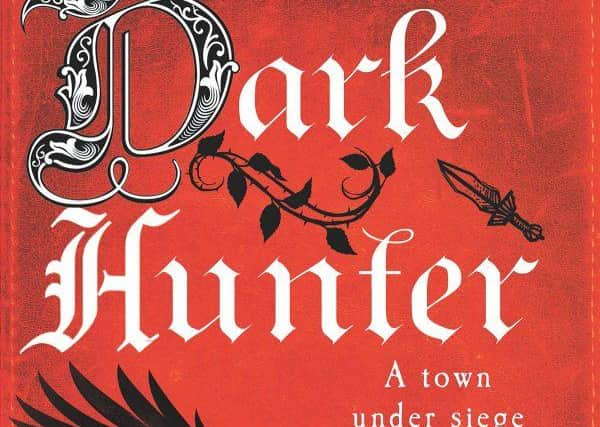Book review: Dark Hunter, by FJ Watson


Many Scots are doubtless still in debt to Nigel Tranter, some 20 years after his death, for their knowledge of mediaeval and Renaissance Scottish history. Tranter was no stylist and his dialogue was wooden, at best functional, but his research was thorough and he was a very good storyteller, one who never forgot that it is narrative interest that has readers turning the pages. FJ Watson is a distinguished academic historian, specialising in mediaeval warfare, and is also the author of a biography of Robert the Bruce, the second volume of which is still to come. Dark Hunter is her first novel.
It is set in Berwick-upon-Tweed, three years after Bannockburn, and, surprisingly and interestingly, is an English, rather than Scottish, novel. That’s to say, it is written from the point of view of a young English squire, by name Benedict, serving in the beleaguered garrison, awaiting an attack by the resurgent Scottish “fiends” and the famed and feared Black Douglas. Benedict, an intelligent young man who is only a reluctant warrior, is an engaging character and persuasive narrator.
Advertisement
Hide AdTranter’s novels were concerned with the march of History. Dark Hunter has really no such concern. It may better be described as a novel set in the past. There is a nod, certainly, to the progress of the war; the English garrison is short of supplies and starved of resources because, after Bannockburn, King Edward has not only been “sent homeward tae think again” but has been denied the power to levy new taxes. Yet the novel is less about the war than about what happens within the town.


Benedict, despised for his book-learning by his fellow squire, Will, soon proves his worth by remarking that the knight in charge of the commissariat is cooking his books, siphoning off money for his own account. So when a beautiful young girl is found murdered outside the walls, Benedict, having reason to suspect that she was actually killed in the town and that the murderer must therefore be sought there, is eventually entrusted with the investigation. Was it a crime of passion, or had she found out that there was a spy or traitor in the camp? In short Watson has written a crime novel set in the early 14th century, and it is a good atmospheric mystery, given depth and authority by the author’s familiarity with conditions of daily life, religious practices, food, drink, clothes, weapons, social distinctions and suchlike then. It is all convincing, easy for the reader to believe that this is what survival in a town awaiting a siege might have been like. Sensibly, Watson has eschewed any tushery or ersatz mock-mediaeval dialogue. So for the most part the picture and atmosphere are persuasive, even though one may wonder whether even a sensitive and rather priggish squire like Benedict would be quite as aware of filth and squalid living conditions as he seems to be.
As a portrait of a mediaeval city under siege the novel is admirable. Likewise the characterisation is at least satisfactory, and it is surely good to be given a picture of how our great wars of Scottish Independence looked or may have been perceived from the other side. In short, this is in many respects a fine first novel, a worthy example of the recent flowering of the Scottish historical novel associated with Andrew Greig and Rosemary Goring. My reservation – a tiresomely familiar one – is occasioned by Watson’s decision to tell her story in the present tense. This is of course fashionable, but the truth is that the present tense is fine for scene-setting but not for narrative. Almost all the great storytellers have employed the simple past tense which enables the writer to cover the ground more briskly. If I was running a creative writing class – which, thank the Lord, I’m not – I would invite students to re-write a chapter of Kidnapped or The Thirty-Nine Steps in the present tense and see how much of the pace and certainty had been lost.
Dark Hunter, by FJ Watson, Polygon. 325pp, £8.99
A message from the Editor:
Thank you for reading this article. We're more reliant on your support than ever as the shift in consumer habits brought about by coronavirus impacts our advertisers.
If you haven't already, please consider supporting our trusted, fact-checked journalism by taking out a digital subscription at https://www.scotsman.com/subscriptions